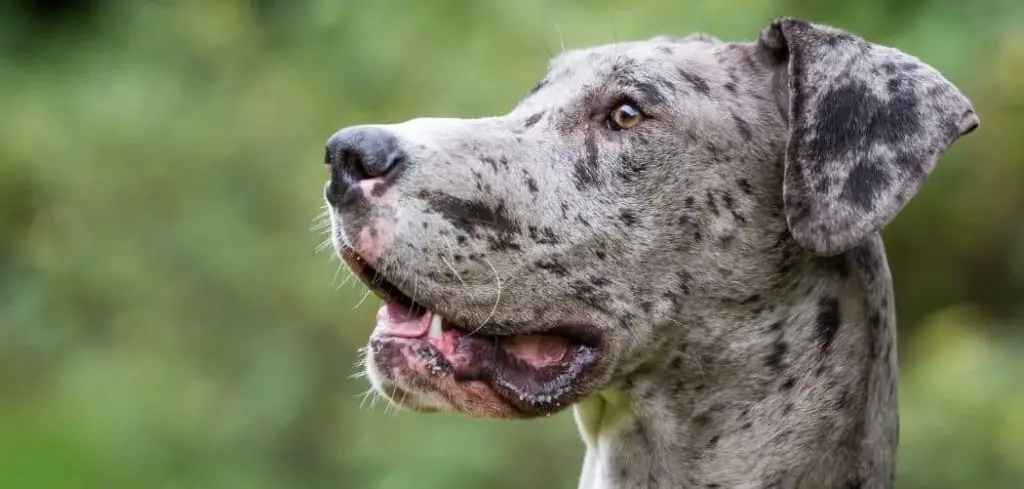When a dog suddenly starts licking everything excessively, it can be alarming for owners. This behavior may look harmless at first but can point to underlying medical or behavioral issues.
We outline the common causes of sudden excessive licking of everything in dogs, what you can do at home, and when to seek veterinary help.
Dog Licking Everything Excessively Suddenly — Why It Happens
Excessive licking of everything by dogs can be triggered by both medical and behavioral causes. Conditions such as nausea, gastrointestinal upset, anxiety, pain, or even neurological changes may drive a dog to lick surfaces, objects, or themselves more than usual.
Hormonal imbalances or toxin exposure can also contribute. Sometimes it stems from stress or compulsive behavior, while in other cases it reflects a physical illness requiring immediate attention.

Sudden Excessive Licking of Everything in Dogs: Common Causes
Gastrointestinal Upset
Dogs often lick floors, walls, or objects when experiencing nausea or stomach discomfort. Licking provides a distraction and can be an instinctive attempt to relieve queasiness.
Owners may also notice drooling, grass-eating, or vomiting. This is especially concerning if the licking starts suddenly and is paired with other digestive issues.
Read more: Dog Licking Nose Excessively Suddenly (Why it happens)
Anxiety or Stress
Stress is a common driver of sudden licking behaviors. Dogs may resort to licking surfaces or themselves as a self-soothing mechanism when anxious.
Triggers can include changes in the home, separation anxiety, or loud noises. Unlike playful licking, anxiety-driven licking often feels urgent and repetitive.
Pain or Discomfort
A dog in pain may begin licking excessively, either to distract themselves or because licking releases endorphins that temporarily ease discomfort.
Joint pain, injuries, or internal discomfort may all be culprits. If licking is paired with limping, whining, or avoidance of touch, pain should be strongly suspected.
Neurological Issues
Certain neurological conditions, such as seizures or cognitive dysfunction in older dogs, can cause repetitive or compulsive licking. These behaviors may come on suddenly and appear disconnected from the environment.
If the licking seems uncontrollable or is paired with confusion, circling, or collapse, neurological causes may be at play.
Hormonal or Metabolic Disorders
Diseases such as Cushing’s disease, thyroid imbalance, or diabetes can trigger behavioral changes, including excessive licking. The body’s chemical imbalance may create restlessness or unusual oral behaviors.
Other symptoms may include hair loss, weight changes, or increased drinking and urination. If these signs appear alongside licking, veterinary evaluation is essential.
Toxin Ingestion
Sometimes sudden licking arises from toxin exposure. Chemicals, plants, or even food residues may irritate the mouth or stomach, leading to compulsive licking.
This cause is urgent, as many household substances can be life-threatening if ingested. Excessive drooling, vomiting, or tremors alongside licking point toward poisoning.
What to Do If Your Dog Is Suddenly Licking Everything Excessively
If a dog suddenly develops excessive licking, the first step is observation. Note when the behavior occurs, whether it follows meals, stressful events, or exposure to new environments.
Offering water and checking the home for potential toxins can help rule out immediate dangers. If the behavior seems linked to anxiety, creating a calm environment and providing enrichment toys can reduce stress-driven licking.
Short-term digestive upset may resolve with rest and bland food, but persistent or worsening signs need veterinary attention. Avoid punishing the dog, as this can increase stress and worsen the behavior.
When to Call or Visit Your Vet
Veterinary care should be sought if excessive licking is accompanied by vomiting, diarrhea, drooling, weakness, or behavior changes. These may indicate poisoning, gastrointestinal disease, or systemic illness.
Sudden compulsion, confusion, or seizures require immediate emergency evaluation. Older dogs showing new repetitive licking may need neurological or metabolic testing.
Even if symptoms are mild, persistent licking that does not resolve in a day or two should be assessed. Early diagnosis can prevent serious complications.
Read more: Dog licking excessively (When is it an emergency?)
Key Takeaway
Sudden, excessive licking in dogs is rarely just a quirky behavior. It can signal nausea, stress, pain, or more serious medical issues such as metabolic disorders or toxin exposure.
Pay attention to the timing, triggers, and any additional symptoms. Providing comfort, ensuring safety, and seeking veterinary guidance when needed ensures that the underlying cause is addressed quickly.
With prompt care and awareness, most dogs can recover from the issue behind their sudden licking and return to their normal, happy selves.
